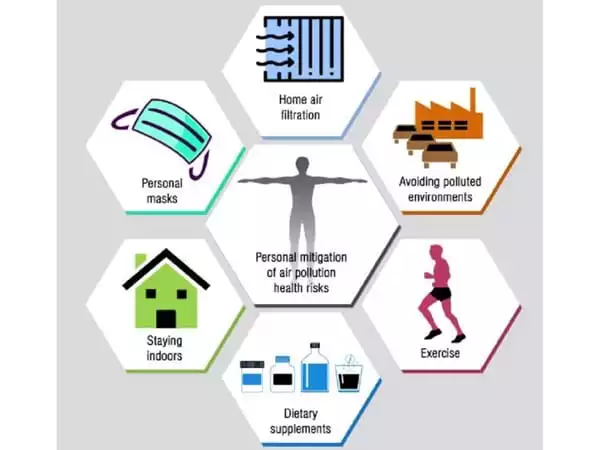Pollution is a negative externality or a societal cost. To reduce pollution, the government can employ four major policies: taxation to raise the price of alternatives, subsidization of alternatives, legislation to prohibit particular pollutants, and pollution permits. Pollution permits are a market-based scheme intended to decrease pollution and encourage businesses to limit the amount of pollution they produce. Permits provide a financial incentive to pollute less since excess permits can be sold to other businesses. In theory, it could be a good strategy to minimize pollution by using market incentives.
The majority of the world’s population is affected by fine particle pollution, which causes respiratory and cardiovascular ailments as well as early deaths, all at a societal cost. A multidisciplinary research team has now developed alternative scenarios that would cut fine particle mortality by two-thirds over the entire conurbation, demonstrating that the benefits attained would outweigh the costs of the measures implemented.
According to a study conducted by a multidisciplinary team from CNRS, INSERM, INRAE, Grenoble Alpes University (UGA), and Atmo Auvergne-Rhône-Alpes, reducing fine particle mortality in a conurbation by two-thirds could be accomplished at a cost much lower than the value of the societal and economic benefits obtained. The study analyzes specific public policies that could fulfill health goals stated by local decision-makers, as well as their anticipated co-benefits.
This is the first study in France to show that the social benefits of steps to improve air quality outweigh the costs of such actions. As a result, it equips decision-makers with scientifically confirmed techniques to significantly improving health across the conurbation.
Fine particle pollution (particles with a diameter of less than 2.5 micrometers, [note 1]) kills around 40,000 people in France each year. The annual cost is anticipated to be €100 billion. Despite this, most governmental programs to fight air pollution are enacted without first analyzing their long-term health and economic consequences.
The MobilAir project aims to address this issue by developing particular solutions that would satisfy the health objectives set by decision-makers in the Grenoble conurbation, namely a 67 percent reduction in the mortality rate related with fine particles from 2016 to 2030. A cost-benefit analysis of various options was carried out by a collaboration involving the Grenoble Applied Economics Lab (CNRS / INRAE / UGA), the Institute for Advanced Biosciences (INSERM / CNRS / UGA), the Centre for Economics and Sociology applied to Agriculture and Rural Areas (AgroSup Dijon / INRAE), and Atmo Auvergne-Rhône-Alpes.
The team concentrated on the two local industries that release the greatest fine particles: wood heating and transportation. They demonstrate that the health goals can be reached by combining two measures: replacing all inefficient wood heaters with new pellet burners and lowering personal motor vehicle travel inside the conurbation by 36%. These measures would need to be complemented by financial aid to households, infrastructure improvements (public transportation and/or cycle routes, for example), and carefully focused public awareness campaigns.

The successful implementation of such measures would result in a slew of other health advantages beyond those immediately connected to fine particles because it would encourage physical activity while also reducing urban noise pollution and greenhouse gas emissions. Scenarios incorporating the most widespread expansion of active modes of transportation (walking and cycling) would result in a net gain of €8.7 billion from 2016 to 2045, equating to an annual benefit of €629 per inhabitant in the conurbation. [Note No. 2]
This is the first study in France to show that the social benefits of steps to improve air quality outweigh the costs of such actions. As a result, it equips decision-makers with scientifically confirmed techniques to significantly improve health across the conurbation.
Some say that solutions to pollution may be found in the free market and that government intervention is unnecessary. For example, technical advancements and dropping solar power costs in recent years have made greener energy more competitive than many fossil fuels. However, due to the free-rider effect, we cannot always leave it to the free market.
This research was supported by Grenoble Alpes University’s Initiative of Excellence (Idex) and ADEME.
Notes
- It is more than 30 times finer than a human hair.
- This benefit was calculated as the difference between the health benefits of the measures (whether tangible, such as lower medical costs and sick leave, or intangible, such as improved quality of life and mortality rates), and the investments and costs associated with these measures, both private and community-wide. In other words, depending on the scenario, each euro invested by the community would yield between €1.1 and €4.7 in societal gain.
















